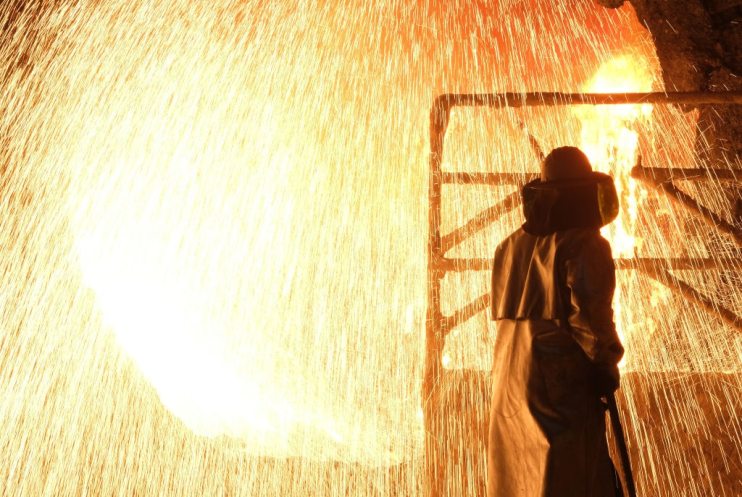British Steel and Tata Steel must go green if given £600m bailout, climate groups say

British Steel and Tata Steel must be forced to commit to a host of green targets if they receive a bumper bailout from the UK taxpayer, green think tanks and campaign groups have said.
Environmental think tank Green Alliance has urged Chancellor Jeremy Hunt to ensure the reported £600m in public funds that will be spent propping up both British Steel and Tata Steel is used to speed up the industry’s transition to clean steel production rather than just balance the books of a flagging sector.
The think tank has called on the government to bring in stringent targets for the companies as part of the funding deals, such as requiring the steel industry to shift half the capacity of each site from coal powered blast furnaces to electric arc furnaces.
Green Alliance calculated that this shift would eliminate 4.9m tonnes of carbon dioxide emissions per year – the equivalent to the annual emissions of 2.4m petrol cars, or removing one in every 14 cars off UK roads.
It argued the requirement to shift to electric arc furnaces must be paired with a commitment by both firms to fully decarbonise by 2035, to ensure the UK can reach net zero over the next three decades.
“Ministers must attach strict green strings to any bail out to make sure taxpayers’ money is well spent and genuinely used to future-proof this critical sector,” Roz Bulleid, research director at Green Alliance, said.
Other green groups backed Green Alliance’s calls for environmental targets to be built into the bailout packages.
Dr Doug Parr, chief scientist and director of policy at Greenpeace told City A.M. that the steel companies “cannot be economically competitive in the 21st century if it isn’t carbon competitive as well.”
“Given the steel industry’s massive contribution to UK and global emissions, many companies and countries are seeing the writing on the wall and are already pushing their steel industry in a lower carbon direction,” Parr said.
Jess Ralston, Head of Energy at the Energy Climate Intelligence Unit, said: “The international race for green steel has already begun and we’re stuck on the starting line.”
“In 2021, our analysis found that while the EU had 23 green steel plants planned or underway, the UK had none, and it’s hard to see that much has changed since then,” Ralston said. “The US is investing heavily in its industry through the Inflation Reduction Act and the EU is expected to follow suit quickly. Without matching this, as the CBI has warned, we’re at risk of missing out on this global momentum, and the exports that come with it.”
Green Alliance also suggested that the government can support low carbon production across the steel industry at limited cost by improving standards for steel scrap exports and by ensuring steel recyclers have sufficient access to well sorted scrap.
The government declined to comment on the reported overall cost of to support British Steel and Tata, and whether any green targets would be attached to those funding deals.
British Steel, Tata Steel have also been approached to comment.